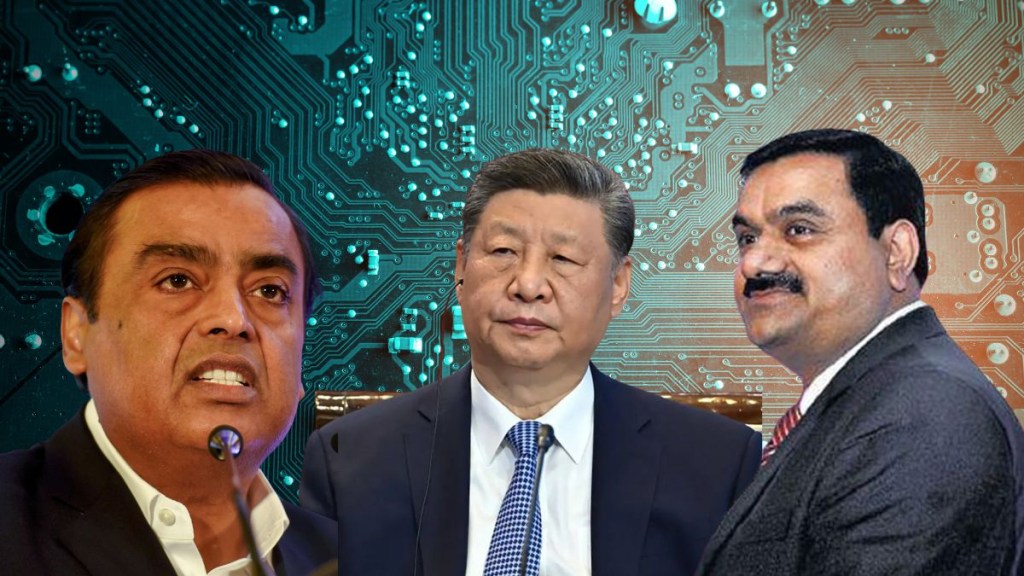Wang Yi India visit: India’s most powerful conglomerates including from Gautam Adani’s Adani Group to Mukesh Ambani’s Reliance Industries and Sajjan Jindal’s JSW Group are quietly deepening commercial links with Chinese firms, despite years of political mistrust between New Delhi and Beijing, reports Bloomberg. This business diplomacy comes at a time when US President Donald Trump’s reciprocal tariffs are reshaping global supply chains, nudging the two Asian rivals towards a thaw.
Executives are discreetly seeking technology transfers in electric vehicles, batteries and renewable energy, areas where China dominates the global market. While New Delhi restricted Chinese investment since the 2020 Galwan Valley clash, companies are testing new ways of working around restrictions, betting that shifting geopolitics will open the door to broader financial cooperation.
Adani and JSW take the lead
According to Bloomberg, Gautam Adani recently visited Chinese firms including CATL, the world’s largest battery maker, and reportedly held discussions with EV giant BYD Co. However, the Adani Group has denied exploring any such collaboration. JSW Group, however, has already struck a deal with Chery Automobile to source technology and components for its new-energy venture.
Meanwhile, Reliance Industries, the refining-to-retail conglomerate headed by Mukesh Ambani, is quietly weighing investments in Chinese-origin battery technology firms as it expands into fuel cells and battery production. Unlike its more publicised acquisitions in the US and Europe, these plans remain under wraps. A person familiar with the matter said Reliance has yet to respond to queries on the development.
On June 4, 2025, Mr. Gautam Adani—Asia’s #3 wealthiest and a BROAD Chiller user—visited BROAD Town. 🏙️
— BROAD Group (@BROAD_ltd) June 6, 2025
In a surprise moment, BROAD President Zhang Yue sketched his portrait in just 2 minutes! ✍️🔥#Adani #BROADChiller #ZhangYue #Sustainability #Innovation #Leadership pic.twitter.com/bJ2Wsdkhk1
Why Indian firms look to China?
Trump’s trade war has created new urgency in the business world. India, criticised by Washington for buying Russian crude, is now being courted as a counterweight to China. Yet paradoxically, Trump’s tariffs have also created incentives for India and China to work together. Both economies are vulnerable to protectionism in the West and see opportunities in building regional supply chains.
Ajay Srivastava of the Global Trade Research Initiative notes that Indian groups lack core capabilities in advanced batteries and clean technology. “Traditional and rising Indian conglomerates getting into new businesses like battery storage and clean mobility, having no expertise or technology, makes them highly dependent on China,” says Srivastava as quoted by Bloomberg.
Therefore, to navigate India’s curbs on Chinese investment, Indian conglomerates are increasingly signing supplier agreements with overseas subsidiaries of Chinese firms in Singapore, Vietnam and Hong Kong. These contracts often carry technology-transfer provisions, routed through third countries to avoid political scrutiny.
India-China thaw Boosts Prospects
These corporate moves come as New Delhi and Beijing seek to stabilise relations after the deadly border clash of 2020. India has reinstated visas for Chinese tourists, Beijing has eased restrictions on urea exports, and direct flights are expected to resume soon. Chinese Foreign Minister Wang Yi’s is on a visit to New Delhi ahead of a likely meeting between Prime Minister Narendra Modi and President Xi Jinping in Tianjin for the SCO Summit later this month. Business leaders hope political signals of rapprochement will unlock greater opportunities for collaboration.
What are the risks of Indian companies investing in China?
Despite optimism, dependence on Chinese firms carries risks. China controls rare earth exports and has previously imposed restrictions on global manufacturers such as Apple’s suppliers. Similarly, India blocked BYD’s $1 billion investment proposal and forced Great Wall Motor Co. to exit after failing to secure approvals, reports Bloomberg.
Analysts caution that Chinese companies will likely demand greater access to India’s 1.4 billion-strong consumer base in return for technology partnerships. This could clash with India’s protectionist stance in sensitive sectors such as automobiles.
Industry experts say Indian firms have little choice but to engage with Chinese technology. “As Indian automakers scale up in EVs, securing key components from China will become a competitive advantage,” said Kumar Rakesh, auto analyst at BNP Pariba, as quoted by Bloomberg.
Meanwhile, China’s lead in renewable energy and battery technology means India risks being left behind if its firms cannot establish reliable supply chains.

